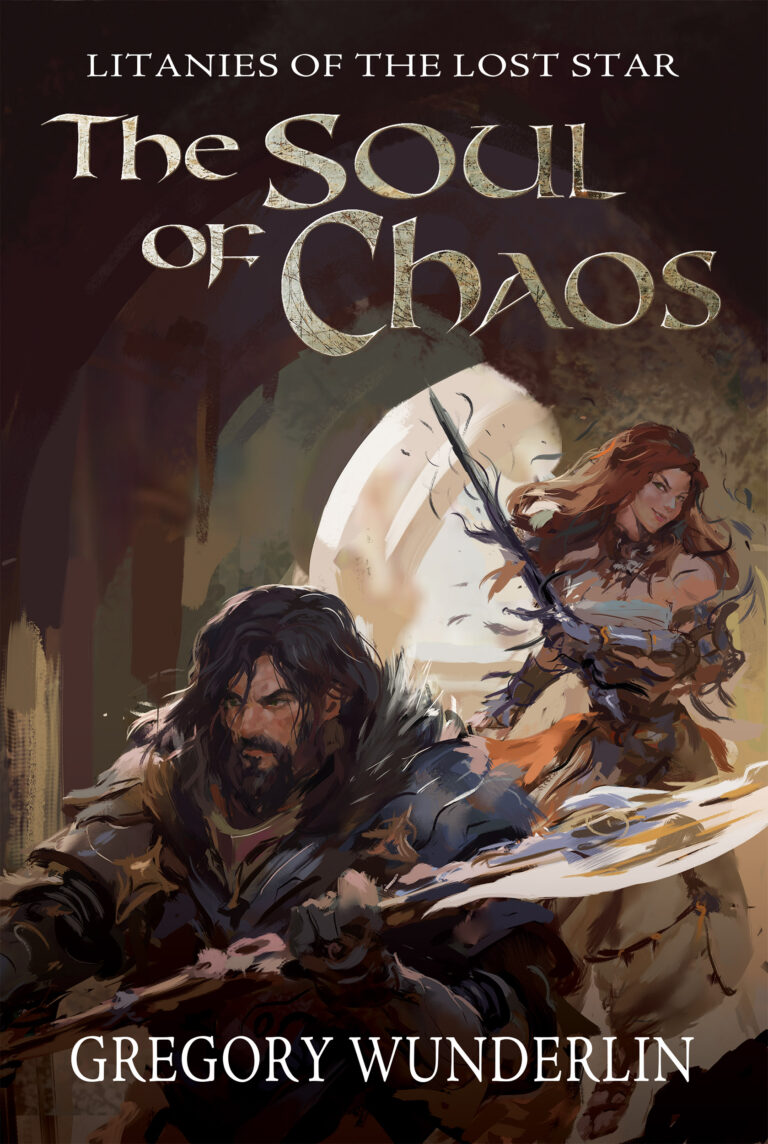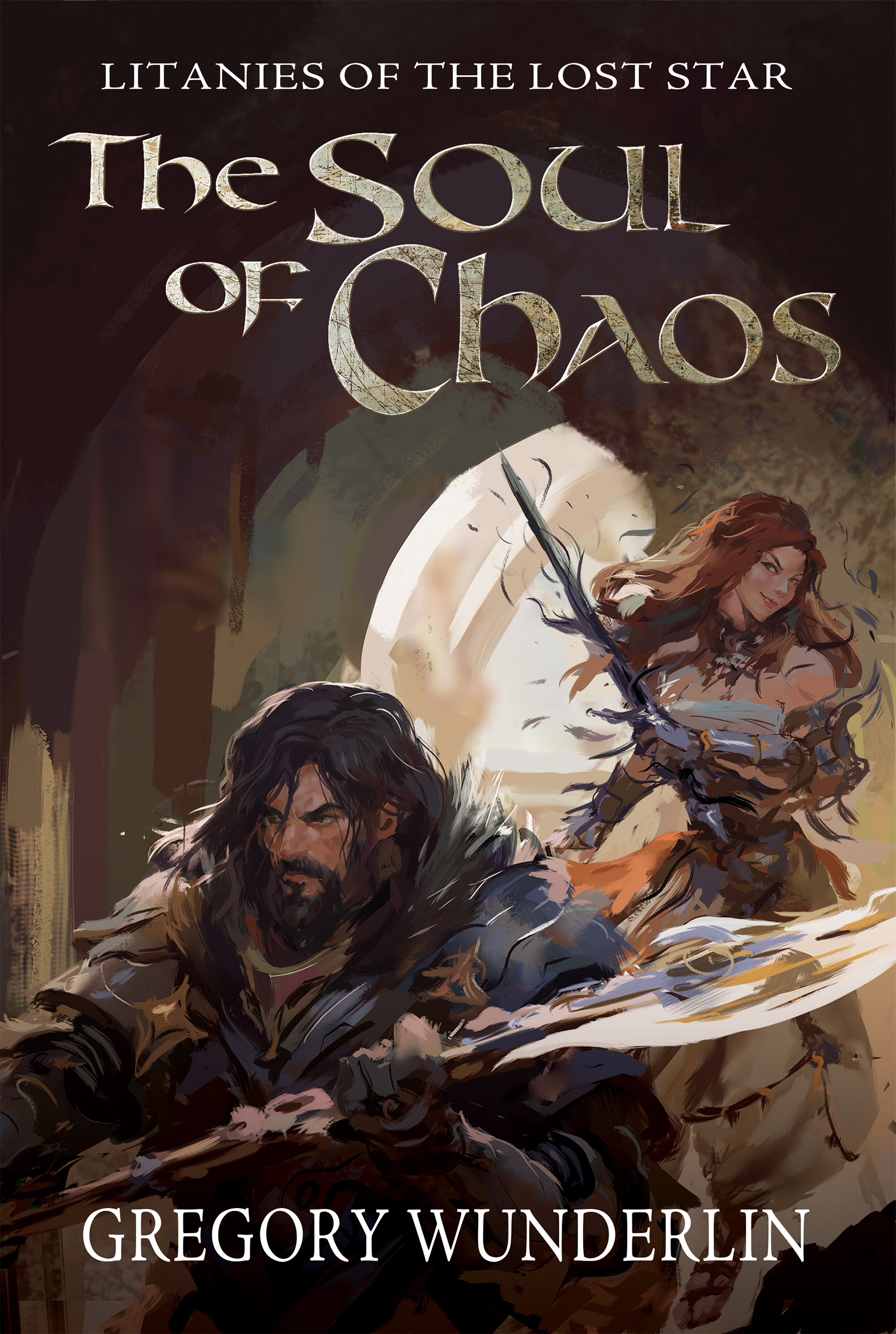A thousand years ago, the world of THE SOUL OF CHAOS was all but destroyed by a cataclysmic event. Now, breakers (indentured servants paying their penance with manual labor) are digging up an ancient ruin of that forgotten time. Rurik, their foreman, hides a noble past; his twin sister, Arkalis, attempts to hold their family together in the face of a hostile occupation. But neither of them is prepared for what Rurik’s team is about to dig up.
As both twins navigate an increasingly hostile conspiracy, the truth of a millennium ago begins to open before them: memories that aren’t theirs, techno-magic far beyond modern reckoning, and a looming threat of ancient chaos. Why can Rurik navigate the ruins? What’s the strange internal voice that calls out to Arkalis? All questions to be explored as the story expands from classic fantasy into borderline sci-fi.
THE SOUL OF CHAOS has many things going for it: first and foremost, a genre-bending style that’s more akin to science-fantasy than anything else. The deeper Rurik and others delve into the ruins, the more technological this world’s ancient magic becomes. Author Gregory Wunderlin refrains from actual sci-fi terminology, though, which works in the book’s favor. Even things easily recognizable to the reader as tablets, robots, and HUDs are couched in the verbiage of high fantasy, keeping the tone well-unified.
The characters are overall engaging, especially the fallen-from-grace Rurik and the feisty Arkalis, although the cast is massive. While this in and of itself is not an issue, there are several characters who blend together a bit in the rush of action. Add to this the fact that there are themes of reincarnation and transferred memories, meaning some characters have multiple names, and the large cast becomes even more intricate. Many are, sadly, lost in the shuffle.
Adding somewhat to the confusion is the handling of other languages. The decision to use real-world French and Latin is an interesting one. However, regardless of what languages are used, multi-lingual dialogue benefits from context clues to keep the reader engaged. Rarely, if ever, are there context clues to tie these non-English utterances into the broader script of a scene—leaving it feeling a bit as though anyone who isn’t speaking the setting’s common tongue is shouting into the wind. This is hopefully something that will be rectified in future Litanies of the Lost Star installments.
While THE SOUL OF CHAOS may occasionally stagger a bit under the breadth of its own worldbuilding, it’s still an exciting and thrilling read. Any flaws in the prose exist largely because the book builds up and populates a world begging to be explored but doesn’t quite manage to balance it all. There are far worse problems for a sprawling fantasy novel to have; and, if this is truly the beginning of a series, this is an issue that may well solve itself in future installments.
Gregory Wunderlin’s THE SOUL OF CHAOS is a double-edged sword of sci-fantasy. Rich with lore and potential, this genre-busting epic has high aspirations.
~Kara Dennison for IndieReader


